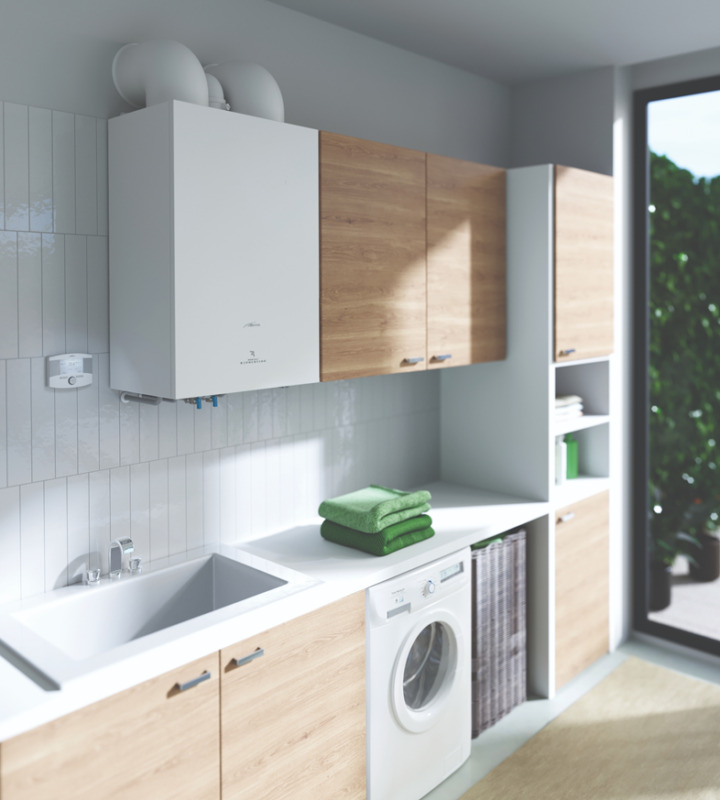DNO UK Power Networks (UKPN) has launched a hybrid low carbon heating system trial together with gas network Wales & West Utilities (WWU).
The HyCompact project will see single-unit hybrid systems that include a gas boiler and an air source heat pump, controlled by smart software, installed in seven homes in Wales, London and the South and East of England.
It will look to demonstrate that such units can be easily retrofitted into millions of homes to reduce emissions. They can be fitted directly into homes, hung on the wall where the existing conventional boiler is.
When renewable electricity is available, the heat pump will be used, with the control system switching to green gas at other times, enabling full decarbonisation of heat according to UKPN and WWU. Additionally, homeowners will be able to benefit from lower cost electricity, taking full advantage of abundant and cheap renewables whenever possible.
Ian Cameron, head of customer services and innovation at UKPN, said they were excited for this “cross vector project”.
“The challenge of achieving net zero is only going to be met through true whole system trials and collaborations. Our goal is to enable the transition to net zero smoothly and at the lowest cost to our energy customers. This project will supply electricity networks with learning of the network impact and the best possible customer proposition for a hybrid transition.”
HyCompact builds on WWU’s previous Freedom Project, and will run through winter and into spring 2021.
For the UK to meet its net zero by 2050 target, increased action is needed to decarbonise the heating sector in particular, which accounted for about 37% of total UK carbon emissions in 2019. Despite this sizeable footprint however, analysis from the UK Energy Research Centre in 2020 found that it would take the UK 700 years to transition to low-carbon heating at its current rate.
While a more ambitious rollout target of 600,000 heat pumps annually by 2028 has since been set by the government as part of Prime Minister Boris Johnson’s Ten Point Plan, concerns remain. For example, a report from the Environmental Audit Committee in December 2020 found that the cost of electricity may cause the rollout to fail.
As such, hybrid projects that allow customers to take advantage of the lowest cost energy may be particularly welcome.
Chris Clarke, WWU energy strategy director, reinterated that decarbonising heat is “one of the biggest challenges we face in the energy sector”.
“As the independent Pathways report showed, repurposing our existing safe and reliable gas network to transport green gases like biomethane and hydrogen helps us get to net zero quicker, saving £13bn a year compared to electrification alone. Smart hybrid systems like HyCompact can make that green gas go further, faster.”






